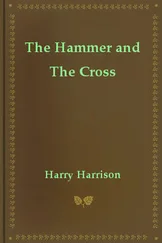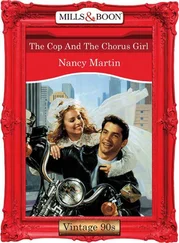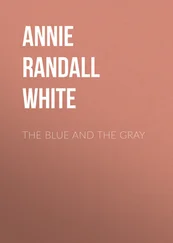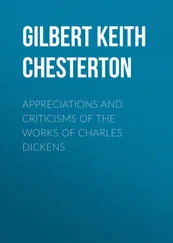Gilbert Chesterton - The Ball and the Cross
Здесь есть возможность читать онлайн «Gilbert Chesterton - The Ball and the Cross» весь текст электронной книги совершенно бесплатно (целиком полную версию без сокращений). В некоторых случаях можно слушать аудио, скачать через торрент в формате fb2 и присутствует краткое содержание. Жанр: Классическая проза, на английском языке. Описание произведения, (предисловие) а так же отзывы посетителей доступны на портале библиотеки ЛибКат.
- Название:The Ball and the Cross
- Автор:
- Жанр:
- Год:неизвестен
- ISBN:нет данных
- Рейтинг книги:5 / 5. Голосов: 1
-
Избранное:Добавить в избранное
- Отзывы:
-
Ваша оценка:
- 100
- 1
- 2
- 3
- 4
- 5
The Ball and the Cross: краткое содержание, описание и аннотация
Предлагаем к чтению аннотацию, описание, краткое содержание или предисловие (зависит от того, что написал сам автор книги «The Ball and the Cross»). Если вы не нашли необходимую информацию о книге — напишите в комментариях, мы постараемся отыскать её.
The Ball and the Cross — читать онлайн бесплатно полную книгу (весь текст) целиком
Ниже представлен текст книги, разбитый по страницам. Система сохранения места последней прочитанной страницы, позволяет с удобством читать онлайн бесплатно книгу «The Ball and the Cross», без необходимости каждый раз заново искать на чём Вы остановились. Поставьте закладку, и сможете в любой момент перейти на страницу, на которой закончили чтение.
Интервал:
Закладка:
“But they won’t catch us,” said MacIan, in his literal way.
“No, we beat them in the great military art of running away,” returned the other. “They won’t catch us unless–”
MacIan turned his long equine face inquiringly. “Unless what?” he said, for Turnbull had gone silent suddenly, and seemed to be listening intently as he ran as a horse does with his ears turned back.
“Unless what?” repeated the Highlander.
“Unless they do–what they have done. Listen.” MacIan slackened his trot, and turned his head to the trail they had left behind them. Across two or three billows of the up and down lane came along the ground the unmistakable throbbing of horses’ hoofs.
“They have put the mounted police on us,” said Turnbull, shortly. “Good Lord, one would think we were a Revolution.”
“So we are,” said MacIan calmly. “What shall we do? Shall we turn on them with our points?”
“It may come to that,” answered Turnbull, “though if it does, I reckon that will be the last act. We must put it off if we can.” And he stared and peered about him between the bushes. “If we could hide somewhere the beasts might go by us,” he said. “The police have their faults, but thank God they’re inefficient. Why, here’s the very thing. Be quick and quiet. Follow me.”
He suddenly swung himself up the high bank on one side of the lane. It was almost as high and smooth as a wall, and on the top of it the black hedge stood out over them as an angle, almost like a thatched roof of the lane. And the burning evening sky looked down at them through the tangle with red eyes as of an army of goblins.
Turnbull hoisted himself up and broke the hedge with his body. As his head and shoulders rose above it they turned to flame in the full glow as if lit up by an immense firelight. His red hair and beard looked almost scarlet, and his pale face as bright as a boy’s. Something violent, something that was at once love and hatred, surged in the strange heart of the Gael below him. He had an unutterable sense of epic importance, as if he were somehow lifting all humanity into a prouder and more passionate region of the air. As he swung himself up also into the evening light he felt as if he were rising on enormous wings.
Legends of the morning of the world which he had heard in childhood or read in youth came back upon him in a cloudy splendour, purple tales of wrath and friendship, like Roland and Oliver, or Balin and Balan, reminding him of emotional entanglements. Men who had loved each other and then fought each other; men who had fought each other and then loved each other, together made a mixed but monstrous sense of momentousness. The crimson seas of the sunset seemed to him like a bursting out of some sacred blood, as if the heart of the world had broken.
Turnbull was wholly unaffected by any written or spoken poetry; his was a powerful and prosaic mind. But even upon him there came for the moment something out of the earth and the passionate ends of the sky. The only evidence was in his voice, which was still practical but a shade more quiet.
“Do you see that summer-house-looking thing over there?” he asked shortly. “That will do for us very well.”
Keeping himself free from the tangle of the hedge he strolled across a triangle of obscure kitchen garden, and approached a dismal shed or lodge a yard or two beyond it. It was a weather-stained hut of grey wood, which with all its desolation retained a tag or two of trivial ornament, which suggested that the thing had once been a sort of summer-house, and the place probably a sort of garden.
“That is quite invisible from the road,” said Turnbull, as he entered it, “and it will cover us up for the night.”
MacIan looked at him gravely for a few moments. “Sir,” he said, “I ought to say something to you. I ought to say–”
“Hush,” said Turnbull, suddenly lifting his hand; “be still, man.”
In the sudden silence, the drumming of the distant horses grew louder and louder with inconceivable rapidity, and the cavalcade of police rushed by below them in the lane, almost with the roar and rattle of an express train.
“I ought to tell you,” continued MacIan, still staring stolidly at the other, “that you are a great chief, and it is good to go to war behind you.”
Turnbull said nothing, but turned and looked out of the foolish lattice of the little windows, then he said, “We must have food and sleep first.”
When the last echo of their eluded pursuers had died in the distant uplands, Turnbull began to unpack the provisions with the easy air of a man at a picnic. He had just laid out the last items, put a bottle of wine on the floor, and a tin of salmon on the window-ledge, when the bottomless silence of that forgotten place was broken. And it was broken by three heavy blows of a stick delivered upon the door.
Turnbull looked up in the act of opening a tin and stared silently at his companion. MacIan’s long, lean mouth had shut hard.
“Who the devil can that be?” said Turnbull.
“God knows,” said the other. “It might be God.”
Again the sound of the wooden stick reverberated on the wooden door. It was a curious sound and on consideration did not resemble the ordinary effects of knocking on a door for admittance. It was rather as if the point of a stick were plunged again and again at the panels in an absurd attempt to make a hole in them.
A wild look sprang into MacIan’s eyes and he got up half stupidly, with a kind of stagger, put his hand out and caught one of the swords. “Let us fight at once,” he cried, “it is the end of the world.”
“You’re overdone, MacIan,” said Turnbull, putting him on one side. “It’s only someone playing the goat. Let me open the door.”
But he also picked up a sword as he stepped to open it.
He paused one moment with his hand on the handle and then flung the door open. Almost as he did so the ferrule of an ordinary bamboo cane came at his eyes, so that he had actually to parry it with the naked weapon in his hands. As the two touched, the point of the stick was dropped very abruptly, and the man with the stick stepped hurriedly back.
Against the heraldic background of sprawling crimson and gold offered him by the expiring sunset, the figure of the man with the stick showed at first merely black and fantastic. He was a small man with two wisps of long hair that curled up on each side, and seen in silhouette, looked like horns. He had a bow tie so big that the two ends showed on each side of his neck like unnatural stunted wings. He had his long black cane still tilted in his hand like a fencing foil and half presented at the open door. His large straw hat had fallen behind him as he leapt backwards.
“With reference to your suggestion, MacIan,” said Turnbull, placidly, “I think it looks more like the Devil.”
“Who on earth are you?” cried the stranger in a high shrill voice, brandishing his cane defensively.
“Let me see,” said Turnbull, looking round to MacIan with the same blandness. “Who are we?”
“Come out,” screamed the little man with the stick.
“Certainly,” said Turnbull, and went outside with the sword, MacIan following.
Seen more fully, with the evening light on his face, the strange man looked a little less like a goblin. He wore a square pale-grey jacket suit, on which the grey butterfly tie was the only indisputable touch of affectation. Against the great sunset his figure had looked merely small: seen in a more equal light it looked tolerably compact and shapely. His reddish-brown hair, combed into two great curls, looked like the long, slow curling hair of the women in some pre-Raphaelite pictures. But within this feminine frame of hair his face was unexpectedly impudent, like a monkey’s.
Читать дальшеИнтервал:
Закладка:
Похожие книги на «The Ball and the Cross»
Представляем Вашему вниманию похожие книги на «The Ball and the Cross» списком для выбора. Мы отобрали схожую по названию и смыслу литературу в надежде предоставить читателям больше вариантов отыскать новые, интересные, ещё непрочитанные произведения.
Обсуждение, отзывы о книге «The Ball and the Cross» и просто собственные мнения читателей. Оставьте ваши комментарии, напишите, что Вы думаете о произведении, его смысле или главных героях. Укажите что конкретно понравилось, а что нет, и почему Вы так считаете.









